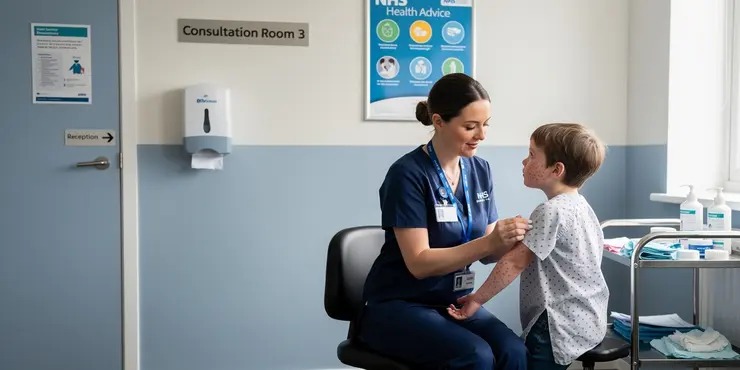
Find Help
More Items From Ergsy search
-
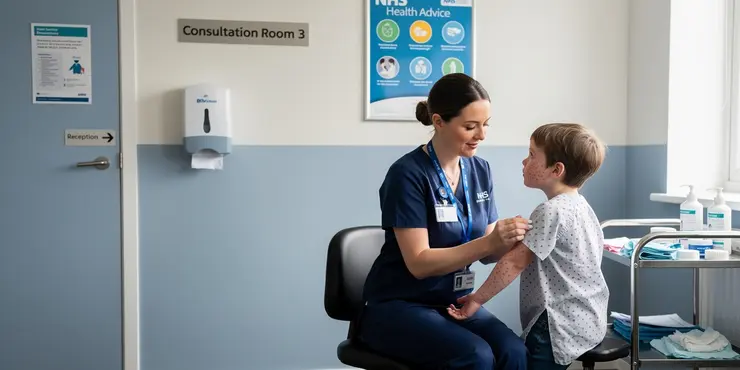
What is the treatment for chickenpox?
Relevance: 100%
-
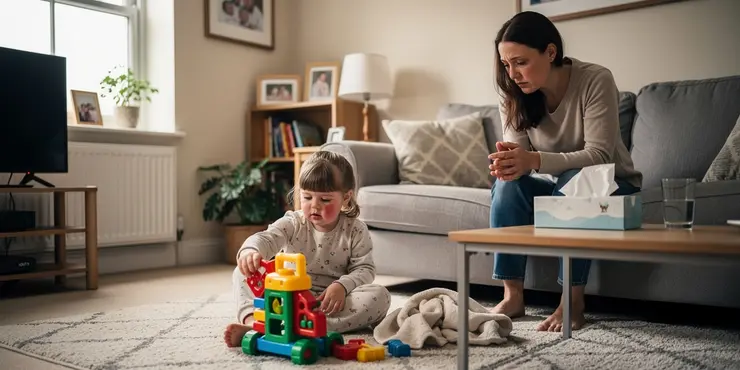
What is Chickenpox?
Relevance: 80%
-
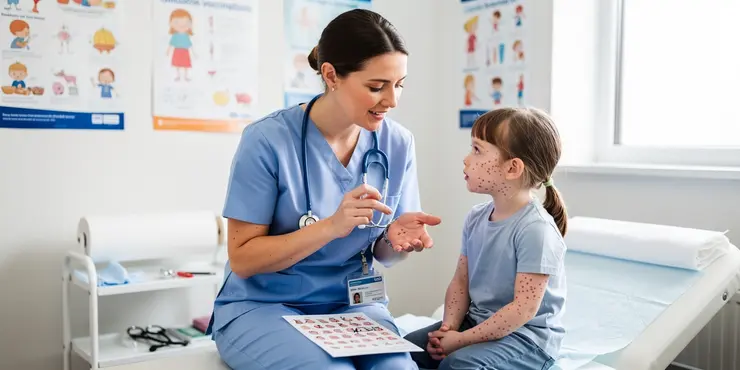
Is chickenpox contagious?
Relevance: 77%
-
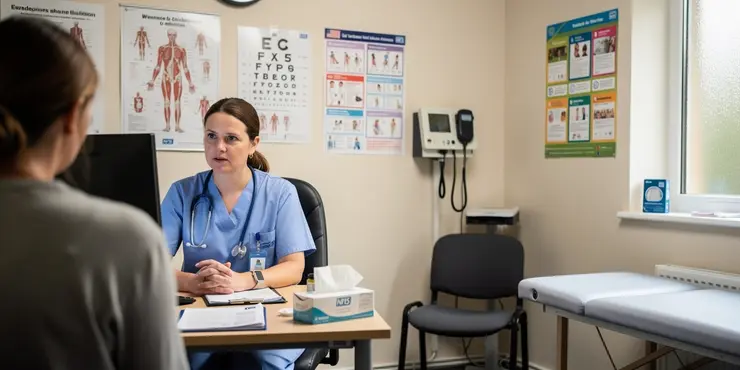
What are the complications of chickenpox?
Relevance: 74%
-
Can pregnant women get chickenpox?
Relevance: 73%
-
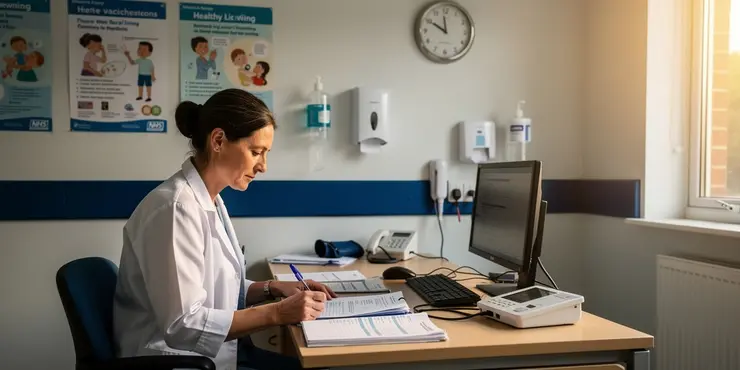
Can adults get chickenpox?
Relevance: 72%
-
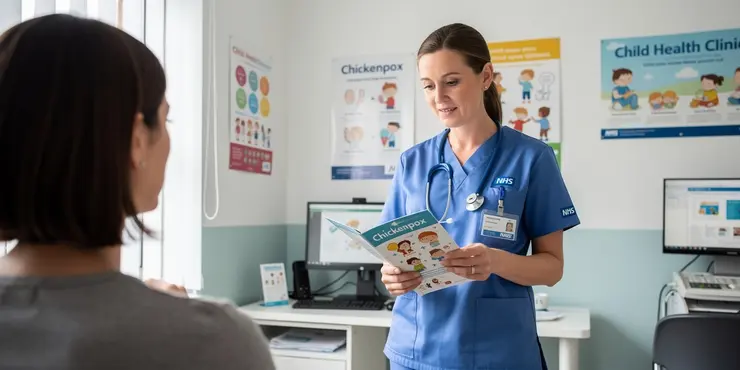
How is chickenpox spread?
Relevance: 72%
-
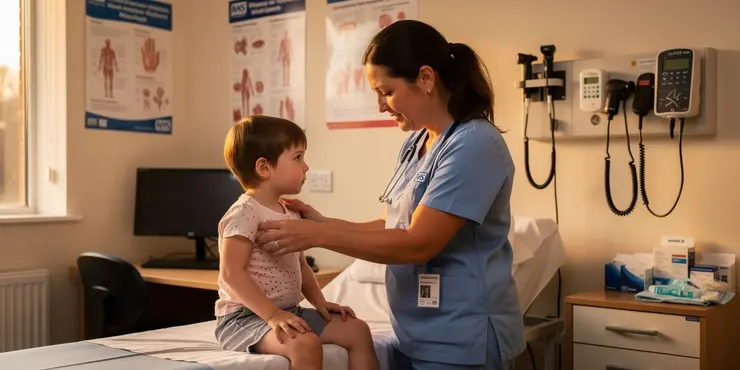
What are the symptoms of chickenpox?
Relevance: 72%
-
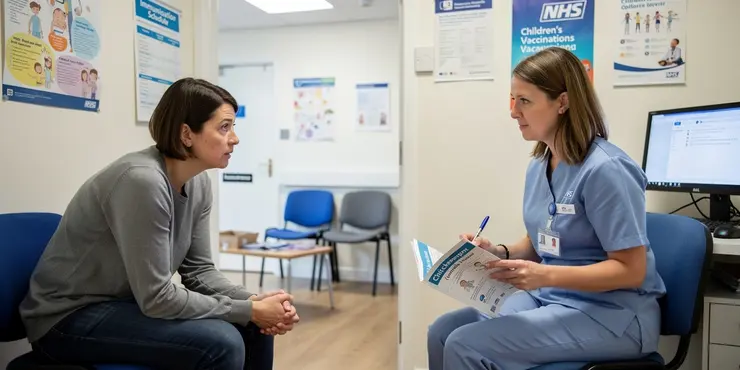
Can chickenpox be prevented?
Relevance: 72%
-
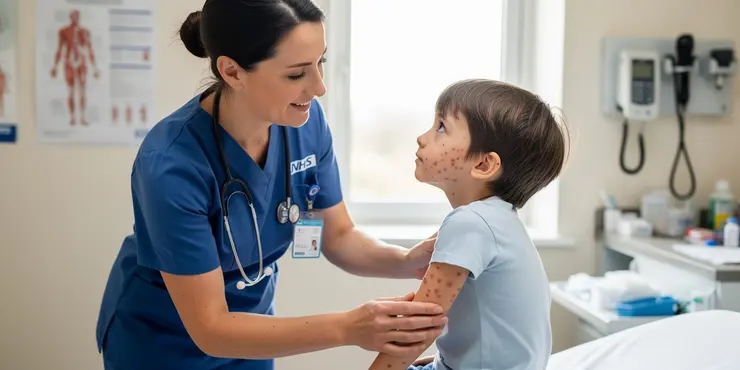
How long does chickenpox last?
Relevance: 70%
-
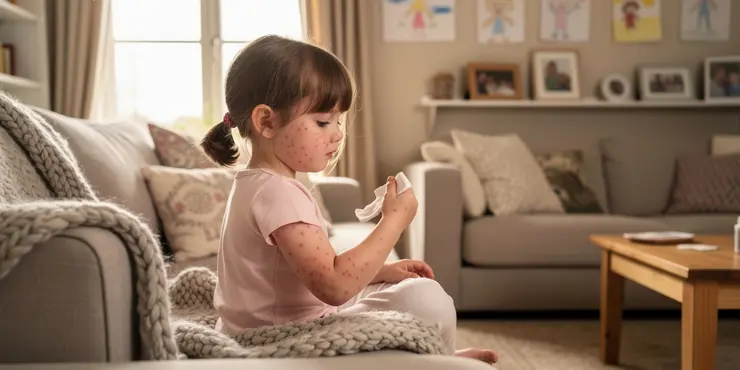
Are there home remedies for chickenpox?
Relevance: 69%
-
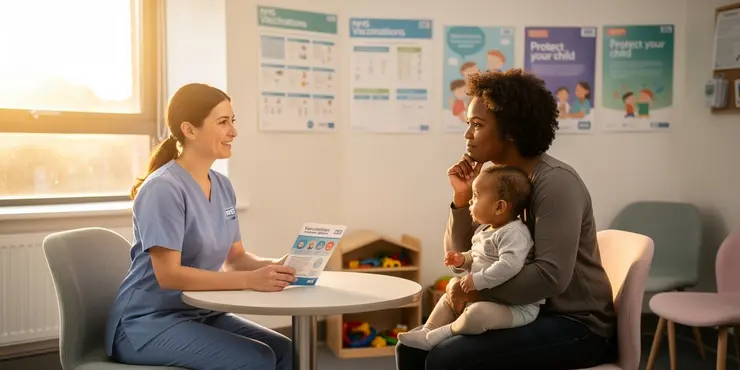
Should I get the chickenpox vaccine?
Relevance: 69%
-
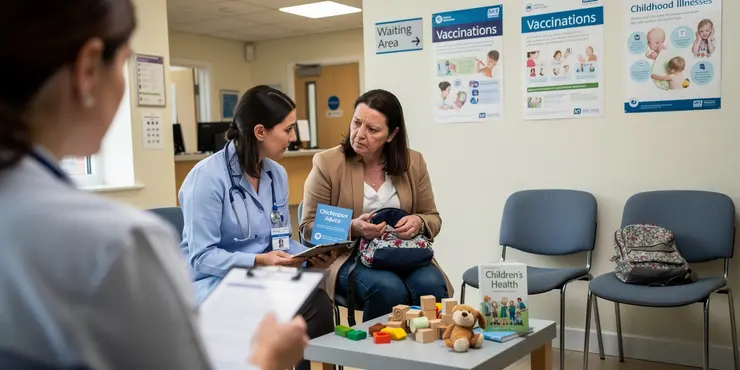
Is it safe to use aspirin to treat chickenpox symptoms?
Relevance: 68%
-
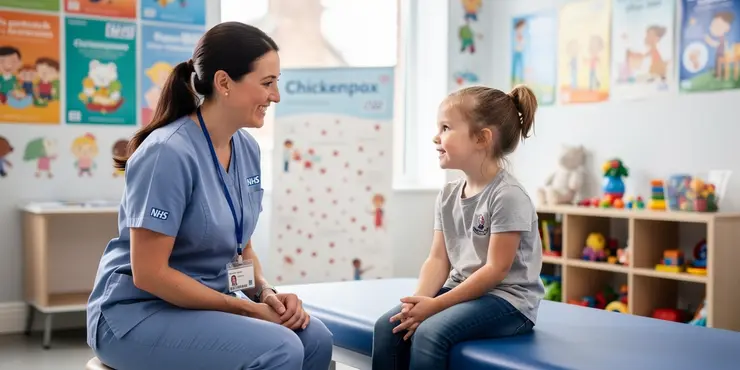
Common health questions about chickenpox | NHS
Relevance: 68%
-
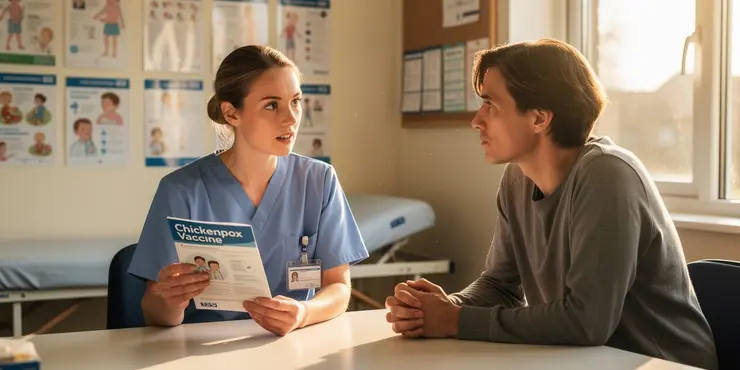
Who should get the chickenpox vaccine?
Relevance: 67%
-
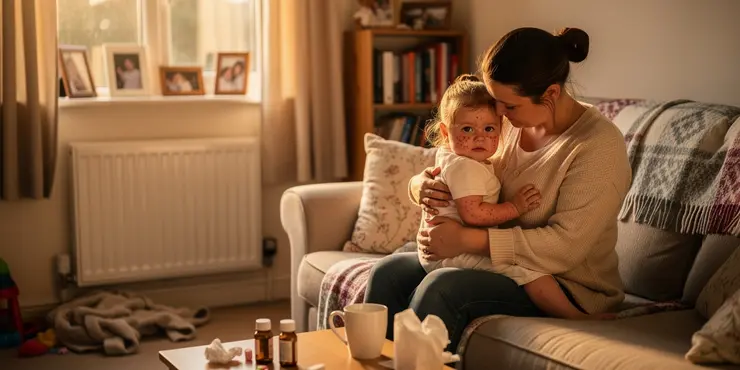
How to Keep a Child With Chickenpox Comfortable
Relevance: 67%
-
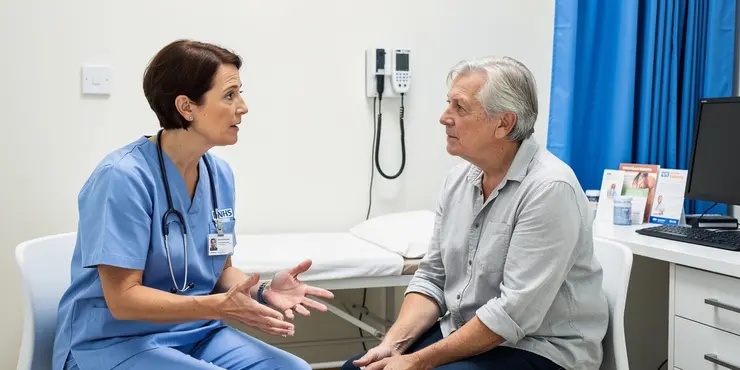
Can the shingles vaccine cause chickenpox?
Relevance: 65%
-
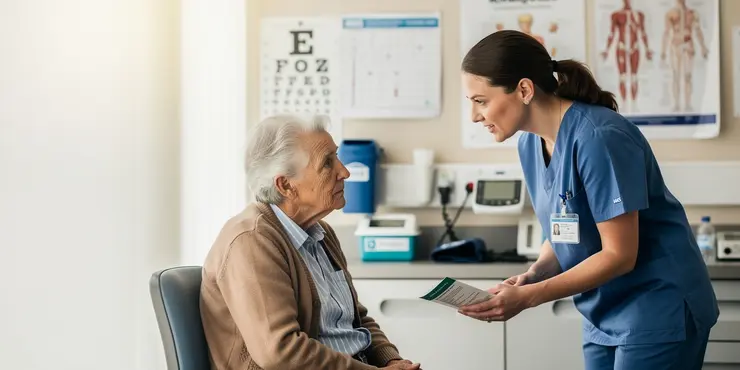
Can the shingles vaccine cause chickenpox?
Relevance: 65%
-
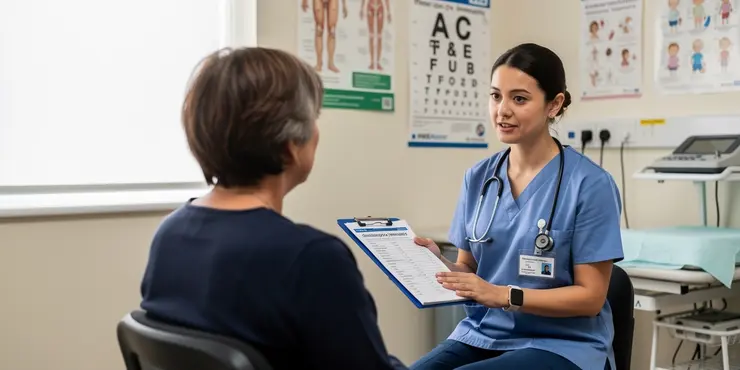
Can you get chickenpox more than once?
Relevance: 63%
-
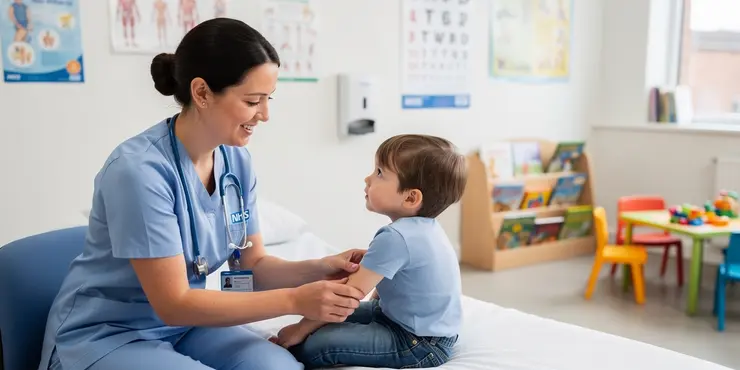
How long is the incubation period for chickenpox?
Relevance: 47%
-
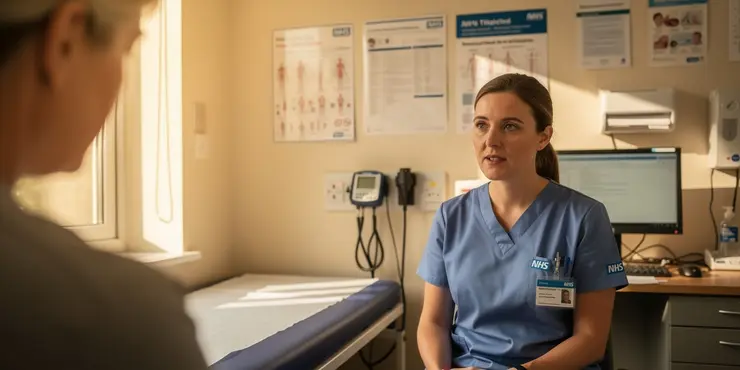
What treatments are available for shingles?
Relevance: 41%
-
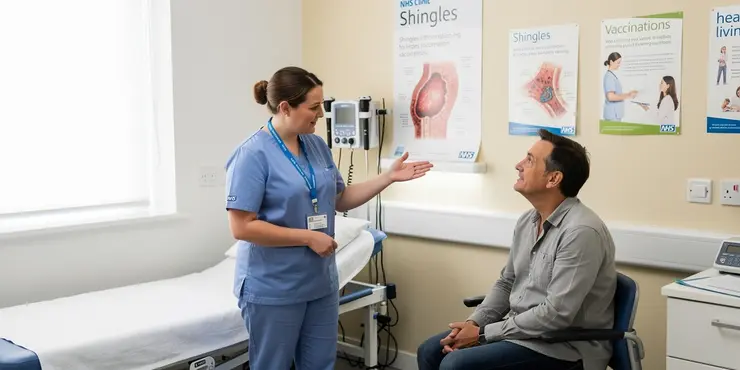
Is shingles contagious?
Relevance: 35%
-
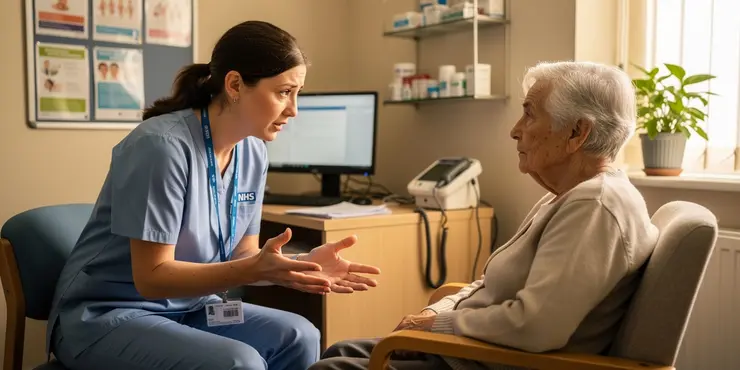
What is Shingles?
Relevance: 34%
-
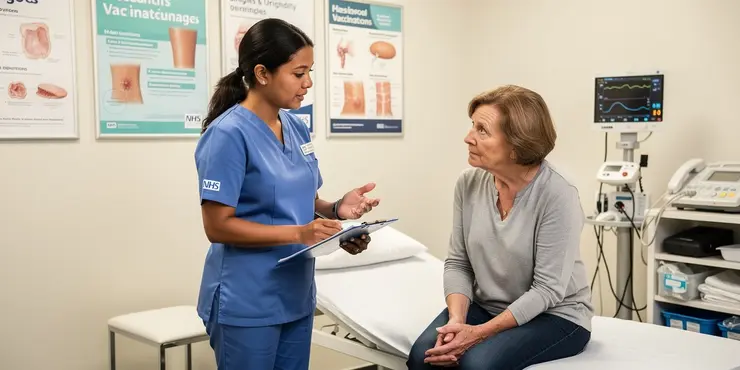
Is shingles contagious?
Relevance: 34%
-
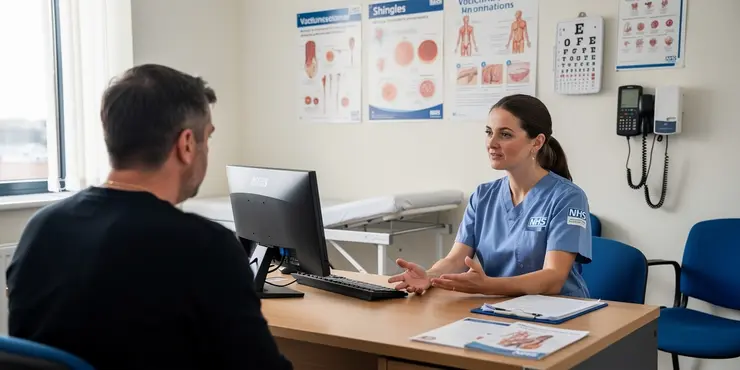
What causes shingles?
Relevance: 34%
-
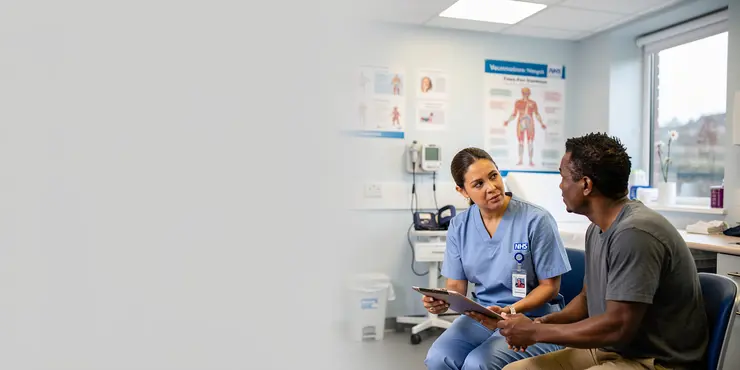
What causes shingles?
Relevance: 34%
-
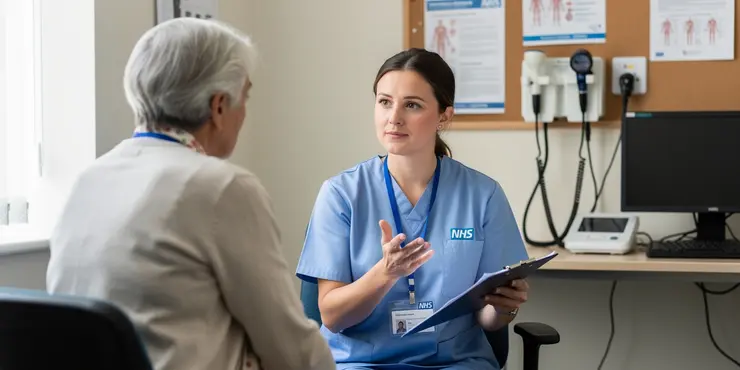
Who is at risk of developing shingles?
Relevance: 33%
-
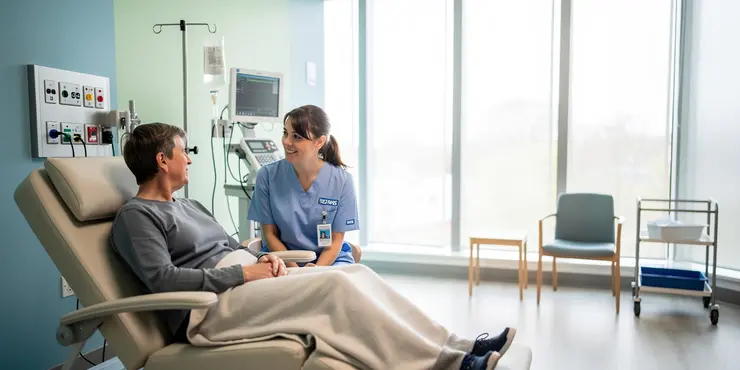
Having chemotherapy and other treatments in the Day Treatment Unit
Relevance: 32%
-
Is there a treatment for measles?
Relevance: 31%
-
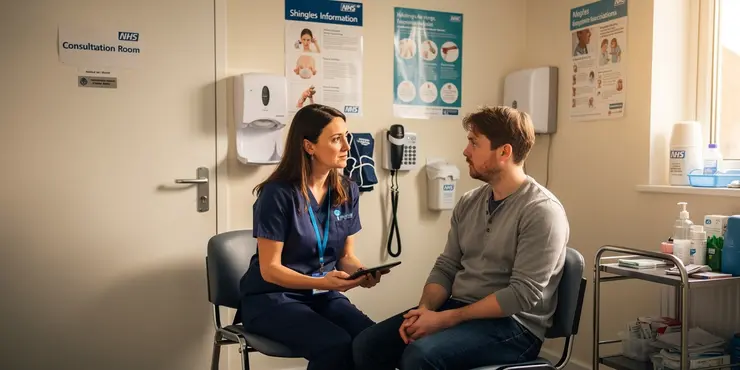
What is shingles?
Relevance: 31%
-
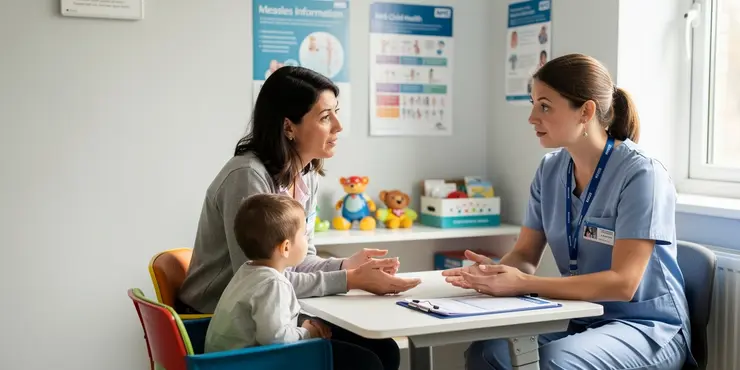
Is there a treatment for measles?
Relevance: 31%
-
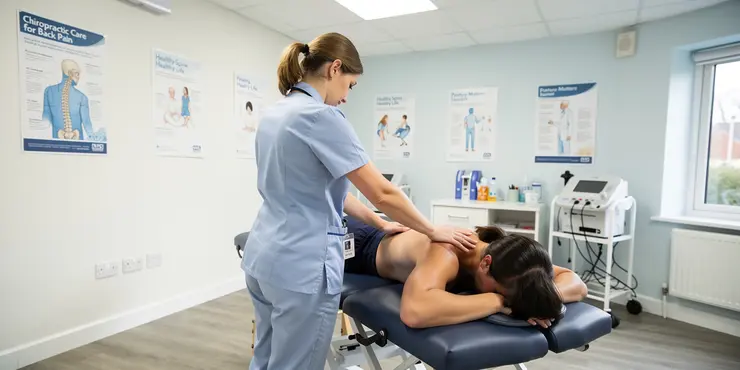
Are chiropractic treatments safe?
Relevance: 31%
-
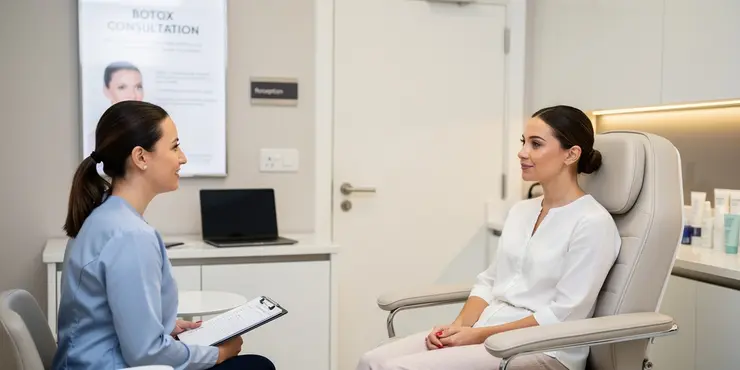
Is Botox treatment expensive?
Relevance: 30%
-
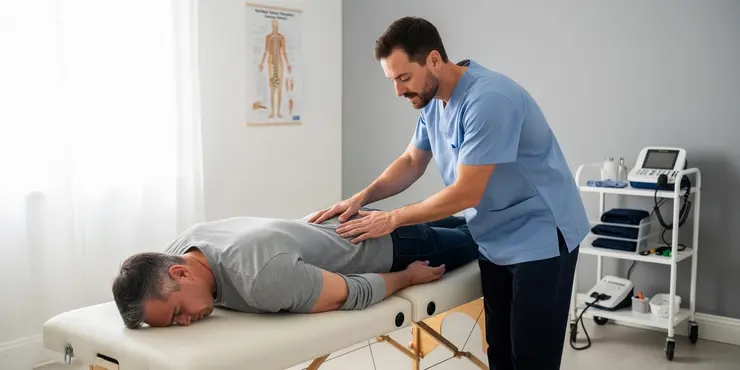
Are chiropractic treatments painful?
Relevance: 30%
-

What is the treatment for appendicitis?
Relevance: 30%
-

Eating disorders: treatment
Relevance: 30%
-
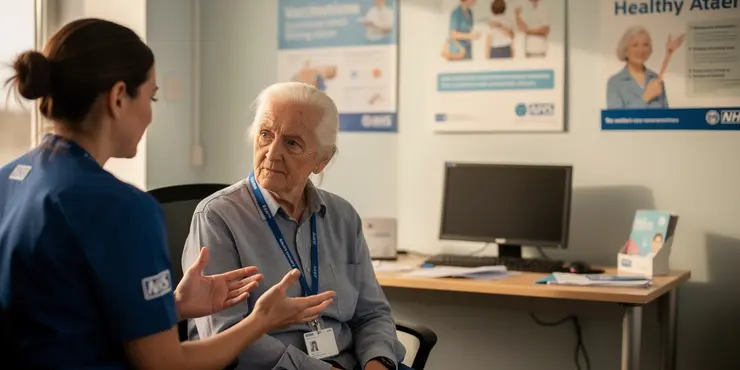
Can shingles be prevented?
Relevance: 30%
-
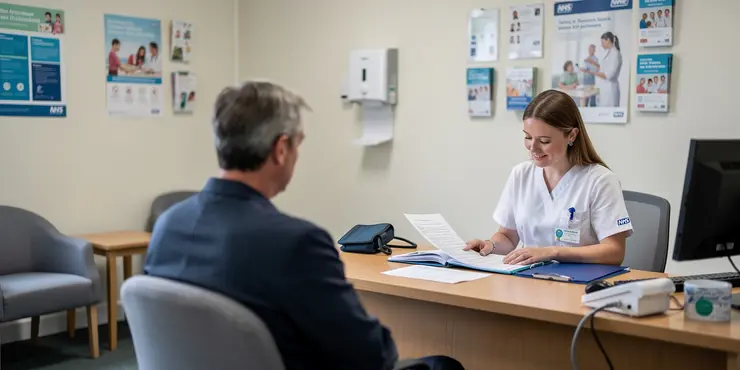
Is Paillon treatment a form of chemotherapy?
Relevance: 29%
-
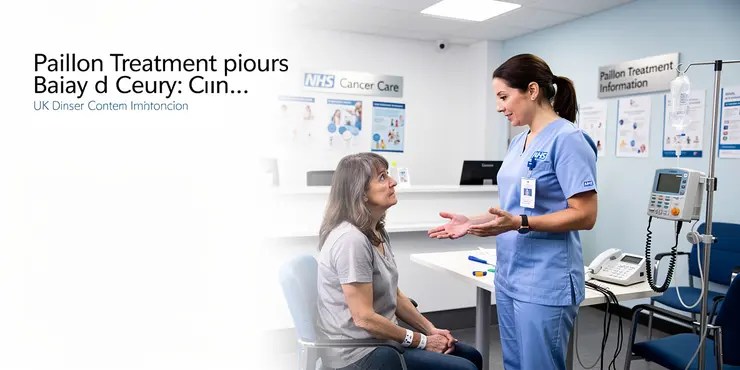
What is Paillon treatment for cancer?
Relevance: 29%
-
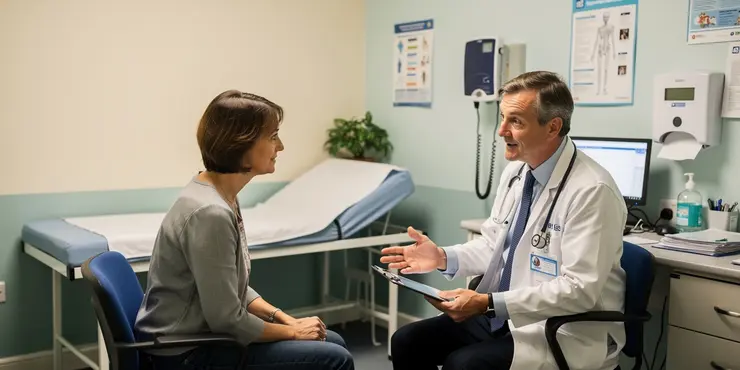
Who developed the Paillon treatment?
Relevance: 29%
Introduction to Chickenpox Treatment
Chickenpox, also known as varicella, is a highly contagious viral infection that predominantly affects children. Though it generally resolves on its own, knowing the right treatment procedures can alleviate symptoms and prevent complications. While many treatments are similar worldwide, it's essential to understand any specific guidance relevant to the UK context.
Over-the-Counter Medication
In the UK, over-the-counter medications can help alleviate some of the symptoms of chickenpox. Paracetamol is often recommended to reduce fever and relieve pain. Aspirin should not be used in children under 16 with chickenpox due to the risk of Reye's syndrome, a serious condition. It's crucial to read the instructions carefully or consult a pharmacist to determine the appropriate dosage for children.
Antiviral Drugs
In certain cases, a GP may prescribe antiviral drugs such as acyclovir to treat chickenpox. This is typically recommended for adults, pregnant women, or anyone with a weakened immune system. Antivirals are most effective when administered within 24 hours of the rash's onset. They can help reduce the severity and duration of symptoms.
Soothing Itchiness
One of the most uncomfortable symptoms of chickenpox is the intense itchiness of the rash. To relieve this, topical lotions such as calamine lotion or cooling gels can be applied directly to the skin. In addition, lukewarm baths with added baking soda, uncooked oatmeal, or colloidal oatmeal can soothe irritated skin. Ensure any products used are appropriate for the patient's age group.
Avoiding Infection and Scarring
It's important to minimize scratching to prevent secondary bacterial infections and scarring. Keeping fingernails short and clean, wearing mittens, and distracting children with activities can help reduce scratching. If a bacterial infection is suspected, such as increased redness, swelling, or pus in the blisters, a GP should be consulted for potential antibiotic treatment.
Hydration and Nutrition
Staying hydrated is key during a chickenpox infection. Drinking plenty of fluids can help manage fever and prevent dehydration. Cold foods and drinks can also soothe oral sores that sometimes accompany chickenpox. Proper nutrition supports the immune system; hence, offering a balanced diet is recommended.
Prevention of Spread
To prevent the spread of chickenpox, those infected should remain at home and avoid contact with others until all blisters have crusted over, which typically takes five to seven days after the rash appears. Children should refrain from attending school or nursery during this period.
Conclusion
While chickenpox is common and usually mild in children, awareness of the appropriate treatments can significantly enhance comfort and prevent complications. In the UK, access to medical care and over-the-counter remedies supports effective management of this infection. For those with underlying health conditions or special circumstances such as pregnancy, professional medical advice is strongly recommended.
Introduction to Chickenpox Treatment
Chickenpox is an illness that spreads easily. It mostly affects children. It usually gets better on its own, but knowing how to treat it can help you feel better and avoid problems. It is important to know the right way to treat it, especially if you live in the UK.
Over-the-Counter Medication
In the UK, you can buy medicine from a pharmacy to help with chickenpox symptoms. Paracetamol can lower fever and ease pain. Do not give aspirin to children under 16 who have chickenpox because it can cause a serious illness. Always read the instructions or ask the pharmacist to know the right dose for children.
Antiviral Drugs
Sometimes a doctor might give antiviral medicine like acyclovir for chickenpox. This is usually for adults, pregnant women, or people with weak immune systems. These medicines work best if taken within a day after the rash starts. They help make the symptoms less severe and shorter.
Soothing Itchiness
Chickenpox can make your skin very itchy. You can use calamine lotion or cooling gels to calm the itchiness. Cool baths with baking soda or oatmeal can make the skin feel better too. Make sure any product you use is safe for the person's age.
Avoiding Infection and Scarring
Try not to scratch the rash to avoid infections and scars. Keep nails short and clean. Wearing mittens and keeping children busy can help them not scratch. If the rash gets redder, more swollen, or has pus, see a doctor. They might give antibiotics.
Hydration and Nutrition
Drinking lots of fluids is important when you have chickenpox. It helps with fever and stops dehydration. Cold foods and drinks can help if your mouth is sore. Eating well helps your body fight the illness.
Prevention of Spread
To stop spreading chickenpox, stay at home and away from others until the blisters dry up. This usually happens 5 to 7 days after the rash starts. Children should not go to school or nursery until then.
Conclusion
Chickenpox is common and not too serious for most children, but knowing how to treat it can help you feel better and avoid problems. In the UK, you can get help from doctors and buy medicines that make it easier to handle chickenpox. If you have health problems or are pregnant, talk to a doctor for advice.
Frequently Asked Questions
What is the primary treatment for chickenpox?
Chickenpox is usually treated with home care, such as rest, hydration, and soothing measures for itching like oatmeal baths or calamine lotion.
Is medication necessary for treating chickenpox?
In most cases, chickenpox does not require specific medication. However, antiviral drugs like acyclovir may be prescribed for people at higher risk of complications.
Can over-the-counter medications help with chickenpox symptoms?
Yes, over-the-counter medications like antihistamines can help relieve itching, and acetaminophen can reduce fever.
Should aspirin be given to children with chickenpox?
No, aspirin should be avoided in children with chickenpox due to the risk of Reye's syndrome.
How do antihistamines help in chickenpox?
Antihistamines can help alleviate itching and provide some relief from the discomfort.
Can antiviral drugs shorten the duration of chickenpox?
Antiviral drugs like acyclovir can shorten the duration and severity of chickenpox if started early, especially in those at risk for severe disease.
What home remedies can help alleviate chickenpox symptoms?
Home remedies like oatmeal baths and calamine lotion can help soothe itching and skin irritation.
Is it necessary to see a doctor for chickenpox?
It's not always necessary to see a doctor for chickenpox, but medical advice may be needed if there are complications or in people with weakened immune systems.
How can I prevent the spread of chickenpox to others?
Keep the infected person isolated as much as possible, and maintain good hygiene to prevent the spread of chickenpox.
When should I seek medical attention for chickenpox?
Seek medical attention if there are signs of complications, such as bacterial skin infection, difficulty breathing, or dehydration.
Can the chickenpox vaccine help if exposed to the virus?
If given within three to five days of exposure, the chickenpox vaccine may help prevent the disease or reduce its severity.
Is there any specific diet recommended for chickenpox?
While there is no specific diet, it is important to stay hydrated and eat nutritious foods to help with recovery.
Are there any complications from chickenpox that require treatment?
Complications like bacterial infections, pneumonia, and encephalitis may require specific treatments such as antibiotics or hospitalization.
How long does chickenpox typically last?
Chickenpox usually lasts about 5 to 10 days, but the healing of the blisters and any associated symptoms may vary.
Can chickenpox cause scars, and how can they be treated?
Chickenpox can cause scars if the blisters are scratched. Keeping the skin moisturized and clean can help reduce scarring.
Is chickenpox contagious before the rash appears?
Yes, chickenpox is contagious 1 to 2 days before the rash appears and remains so until all blisters have crusted over.
Are there any risks for pregnant women who contract chickenpox?
Yes, chickenpox in pregnancy can pose risks to both the mother and the unborn child, and medical advice should be sought.
Can chickenpox recur after recovery?
Once recovered, chickenpox does not recur, but the virus can reactivate later in life as shingles.
Can chickenpox be treated with natural remedies?
Natural remedies such as herbal teas and cool compresses may help alleviate symptoms, but they should not replace medical advice.
What should I avoid doing if I have chickenpox?
Avoid scratching the blisters to prevent scarring and secondary infections, and refrain from using aspirin.
What is the main way to treat chickenpox?
Chickenpox is a sickness with itchy spots. The main way to help is to rest and take medicine for the itch and fever. Ask a doctor or trusted adult for help.
When you have chickenpox, you can feel better with a few simple things at home. Get lots of rest and drink plenty of water. To help with the itching, you can take a bath with special oatmeal or use calamine lotion on your skin.
Do you need medicine to help with chickenpox?
Most of the time, you don't need special medicine for chickenpox. But sometimes, doctors give medicine called acyclovir to people who might get very sick from chickenpox.
Can you buy medicine from the store to help with chickenpox symptoms?
If you have chickenpox, there are medicines you can buy at the store to help you feel better.
Here are some ways they can help:
- They can make itching less itchy.
- They can help with fever and pain.
Ask a grown-up or your doctor which medicine is safe for you.
You can also:
- Take cool baths to soothe your skin.
- Wear loose clothes so you feel comfortable.
Yes, you can buy medicines from the store to help you feel better. Some medicines can stop itching, and others, like acetaminophen, can help if you have a fever.
Is it safe to give aspirin to children who have chickenpox?
Children with chickenpox should not take aspirin.
Aspirin can be very dangerous for children who have chickenpox. It can cause a serious illness called Reye's syndrome. This can make them very sick.
If your child has chickenpox and needs medicine for pain or fever, give them paracetamol instead. Always ask a pharmacist or doctor if you are unsure.
To help children with chickenpox feel better:
- Make sure they drink plenty of water.
- Keep their skin cool and comfortable.
- Put on soothing lotion for itchy spots.
If you have questions, talk to a doctor. They can help you choose the right treatment.
No, children with chickenpox should not take aspirin. It can make them very sick with something called Reye's syndrome.
How do antihistamines help with chickenpox?
Chickenpox can make you itch. Antihistamines are medicine that help stop the itch. They make you feel better by calming the skin. Sometimes, they help you sleep too. If you take antihistamines, ask an adult or a doctor first.
Here are some tools and tips to help:
- Use picture books about chickenpox.
- Ask a friend or family member to read with you.
- Try to focus on one idea at a time.
- Take breaks if you feel tired.
- Use a dictionary to find out what new words mean.
Antihistamines can help stop the itching and make you feel better.
Do medicines help chickenpox go away faster?
Medicines called antiviral drugs, like acyclovir, can help make chickenpox go away faster and make it less bad. They work best if you start them early, especially for people who might get very sick from chickenpox.
What can you do at home to feel better if you have chickenpox?
Chickenpox can make you feel itchy and uncomfortable. Here are some things you can do at home to feel better:
- Oatmeal bath: Taking a bath with oatmeal in it can help stop the itchiness. You can buy oatmeal bath packets at the store.
- Calamine lotion: This is a special lotion you can put on your skin to make the itchy spots feel better.
- Stay cool: Wear light clothes and keep the room cool. This can help you not feel so itchy.
- Don’t scratch: Try not to scratch the spots. Scratching can make them worse.
- Take rest: Make sure you get plenty of sleep to help your body fight the virus.
- Drink water: Drink lots of water to stay hydrated.
If you need more help, ask an adult or a doctor.
Here are some simple ways to help if your skin is itchy or irritated:
1. Try an oatmeal bath. Put oatmeal in your bath to make your skin feel better.
2. Use calamine lotion. It can help stop the itching and make your skin feel good.
Ask an adult to help you with these steps.
Do I need to see a doctor for chickenpox?
You don't always need to see a doctor for chickenpox. But sometimes, you might need to if you have problems or if your body is not strong enough to fight it.
How can I stop chickenpox from spreading to others?
Chickenpox is a sickness that can spread easily. Here are some ways to stop it from spreading:
- Stay away from others if you have chickenpox.
- Try not to touch your spots or blisters.
- Keep your hands clean. Wash them often with soap and water.
- If you cough or sneeze, cover your mouth and nose with a tissue or your sleeve.
- Throw tissues in the bin straight away.
- Tell people you have been around that you have chickenpox, so they can be careful too.
If you need help, ask an adult to help you with these steps.
Try to keep the sick person away from others. This helps stop chickenpox from spreading. Make sure everyone washes their hands often.
When should I see a doctor for chickenpox?
If you have chickenpox, you might need to see a doctor.
Here are some times when you should go:
- If you have trouble breathing or chest pain.
- If the spots become very red, sore, and ooze pus (this could be an infection).
- If you feel very sleepy or can't wake up easily.
- If you have a high fever (very hot) for more than four days.
- If you have a stiff neck or if bright lights hurt your eyes.
- If you feel dizzy or if you keep throwing up (vomiting).
- If you are worried or feel something is not right, it's good to ask a doctor.
Use tools like text-to-speech apps or picture dictionaries to help understand more.
Go to the doctor if you notice any problems. Look out for signs like skin infections, trouble breathing, or not having enough water in your body.
Can the chickenpox shot help if you are around someone with chickenpox?
If you get the chickenpox vaccine soon after being around someone who has chickenpox, it can help stop you from getting sick. Getting the vaccine within three to five days can also make the sickness less serious.
What should you eat if you have chickenpox?
When you have chickenpox, eating the right foods can help you feel better. Here are some tips:
- Soft foods: Eat foods that are soft and easy to swallow, like soup, yogurt, or mashed potatoes.
- Stay hydrated: Drink lots of water and healthy drinks like fruit juice or milk.
- Avoid spicy or salty foods: These can hurt your mouth if you have chickenpox spots there.
You can ask an adult or a doctor if you need more help. They can give you more advice.
There isn't a special diet you must follow. But it's important to drink lots of water and eat healthy foods to get better.
Can chickenpox cause problems that need a doctor's help?
Sometimes people get very sick with things like infections, bad lung sickness (pneumonia), or brain sickness (encephalitis). They might need extra help like medicine from the doctor or staying in the hospital.
How long does chickenpox last?
Chickenpox lasts for about 5 to 10 days. The spots and other problems might take different amounts of time to heal.
Do chickenpox cause scars, and how can we treat them?
If you scratch the blisters from chickenpox, you can get scars. To help stop scarring, keep your skin clean and use lotion to keep it soft.
Can you catch chickenpox before you see the spots?
Yes, you can catch chickenpox from someone 1 to 2 days before they get spots. You can still catch it until all their spots have turned into scabs.
Can chickenpox make pregnant women sick?
Yes, getting chickenpox while pregnant can be risky for both the mom and the baby. It is important to talk to a doctor.
Can you get chickenpox again after you have had it?
Once you get better from chickenpox, you won't get it again. But the virus can come back later and cause something called shingles.
Can you use home methods to help with chickenpox?
Chickenpox is a skin rash that makes you itchy. Here are some easy ways to feel better:
- Take cool baths to soothe your skin.
- Dab calamine lotion on the itchy spots.
- Wear soft clothes so your skin doesn't get scratched.
- Try not to scratch the spots to help your skin heal.
If you have chickenpox, it's still a good idea to talk to a doctor. They can give you the best advice.
Herbal teas and cool cloths can help you feel better, but you should still see a doctor for advice.
What should I not do if I have chickenpox?
If you have chickenpox, here are some things to avoid:
- Do not scratch your spots. Scratching can make them worse and cause scars.
- Stay away from people who have not had chickenpox. You can give them chickenpox.
- Do not go to school or work. Rest at home until you feel better.
- Avoid spicy or salty foods. These can make your mouth sore.
Here are some tips to help you feel better:
- Put on calamine lotion. It helps with itching.
- Wear soft, loose clothes. They can help keep you comfortable.
- Ask an adult about medicine that helps with itching and fever.
Don't scratch blisters. Scratching can make scars. It can also cause infections.
Don't take aspirin.
If you need help, you can put a soft bandage on the blister. You can also ask someone for help to make sure your blister stays clean.
Useful Links
This website offers general information and is not a substitute for professional advice.
Always seek guidance from qualified professionals.
If you have any medical concerns or need urgent help, contact a healthcare professional or emergency services immediately.
Some of this content was generated with AI assistance. We’ve done our best to keep it accurate, helpful, and human-friendly.
- Ergsy carfully checks the information in the videos we provide here.
- Videos shown by Youtube after a video has completed, have NOT been reviewed by ERGSY.
- To view, click the arrow in centre of video.
- Most of the videos you find here will have subtitles and/or closed captions available.
- You may need to turn these on, and choose your preferred language.
- Go to the video you'd like to watch.
- If closed captions (CC) are available, settings will be visible on the bottom right of the video player.
- To turn on Captions, click settings .
- To turn off Captions, click settings again.
More Items From Ergsy search
-

What is the treatment for chickenpox?
Relevance: 100%
-

What is Chickenpox?
Relevance: 80%
-

Is chickenpox contagious?
Relevance: 77%
-

What are the complications of chickenpox?
Relevance: 74%
-
Can pregnant women get chickenpox?
Relevance: 73%
-

Can adults get chickenpox?
Relevance: 72%
-

How is chickenpox spread?
Relevance: 72%
-

What are the symptoms of chickenpox?
Relevance: 72%
-

Can chickenpox be prevented?
Relevance: 72%
-

How long does chickenpox last?
Relevance: 70%
-

Are there home remedies for chickenpox?
Relevance: 69%
-

Should I get the chickenpox vaccine?
Relevance: 69%
-

Is it safe to use aspirin to treat chickenpox symptoms?
Relevance: 68%
-

Common health questions about chickenpox | NHS
Relevance: 68%
-

Who should get the chickenpox vaccine?
Relevance: 67%
-

How to Keep a Child With Chickenpox Comfortable
Relevance: 67%
-

Can the shingles vaccine cause chickenpox?
Relevance: 65%
-

Can the shingles vaccine cause chickenpox?
Relevance: 65%
-

Can you get chickenpox more than once?
Relevance: 63%
-

How long is the incubation period for chickenpox?
Relevance: 47%
-

What treatments are available for shingles?
Relevance: 41%
-

Is shingles contagious?
Relevance: 35%
-

What is Shingles?
Relevance: 34%
-

Is shingles contagious?
Relevance: 34%
-

What causes shingles?
Relevance: 34%
-

What causes shingles?
Relevance: 34%
-

Who is at risk of developing shingles?
Relevance: 33%
-

Having chemotherapy and other treatments in the Day Treatment Unit
Relevance: 32%
-
Is there a treatment for measles?
Relevance: 31%
-

What is shingles?
Relevance: 31%
-

Is there a treatment for measles?
Relevance: 31%
-

Are chiropractic treatments safe?
Relevance: 31%
-

Is Botox treatment expensive?
Relevance: 30%
-

Are chiropractic treatments painful?
Relevance: 30%
-

What is the treatment for appendicitis?
Relevance: 30%
-

Eating disorders: treatment
Relevance: 30%
-

Can shingles be prevented?
Relevance: 30%
-

Is Paillon treatment a form of chemotherapy?
Relevance: 29%
-

What is Paillon treatment for cancer?
Relevance: 29%
-

Who developed the Paillon treatment?
Relevance: 29%


